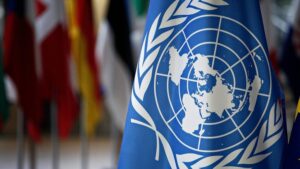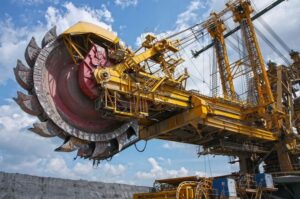
Despite improved weather conditions in May, rapeseed yields may be the lowest in four years, according to the information and analytical agency UkrAgroConsult.
Analysts noted that May weather conditions traditionally play a significant role in the development, growth, and formation of crop yields. Precipitation is particularly important this year, as the problem with moisture reserves has persisted since autumn and reached critical levels in spring. At the end of May, we have more significant reserves of productive moisture in the top meter of soil.
They drew attention to the fact that despite the improvement in weather conditions in May and the replenishment of moisture reserves, there are a number of negative factors that lead to a reduction in the rapeseed harvest forecast, in particular, a decrease in yield potential, crop discing, and the inability to meet the deadlines for agrotechnical operations.
Given the current situation, UkrAgroConsult has increased the level of crop losses and expects yields to be below the average for the previous three years. In a more pessimistic scenario, experts suggest that the rapeseed harvest will be the lowest in the last four seasons.

Ukraine has just been elected in the first round as a member of the UN Economic and Social Council (ECOSOC) for 2026-2028, according to the Ministry of Foreign Affairs of Ukraine on its Telegram channel.
“This is a significant achievement for which we have worked tirelessly for a long time. We are grateful for the trust and support. It is a great honor for Ukraine to join one of the main bodies of the UN, which promotes global cooperation in the field of development, human rights, and humanitarian response. These areas are in line with the goals and principles of the UN Charter,” said Foreign Minister Andriy Sybiga.
He emphasized that Ukraine will actively and constructively participate in achieving the Sustainable Development Goals in a spirit of partnership, promoting solidarity and building a more inclusive, just, and sustainable world for all.
“We congratulate all the elected member states that stand guard over the UN Charter and reject any attempts to undermine international law. We look forward to close cooperation to protect our common values and achieve tangible progress,” Sybiga concluded.

Do you dream of a calm, relaxed facial expression without expression lines?
At ADONIS, we know how to achieve this delicately and effectively. Take advantage of our summer offer on botulinum therapy and emphasize your natural beauty.
Nabota
Botox (Allergan)
Important: Botulinum therapy is contraindicated for pregnant and breastfeeding women.
Sign up for the procedure through the ADONIS BEAUTY administrator at: 067 123 20 20
or through the contact center: 0 800 707 707
When signing up, please indicate that you would like to take advantage of the “Meet summer without wrinkles” promotion.
We look forward to seeing you at: 39 Spaska Street
ADONIS is a network of private medical centers for adults and children. The ADONIS private clinic was founded over 25 years ago. Its network includes seven branches in Kyiv and the surrounding region, including a rehabilitation center and a stem cell laboratory. The clinic’s branches offer medical services in 65 areas. During the war, ADONIS branches with surgical departments provide quality medical care to military personnel and civilians.

In 2024, revenues in Ukraine’s extractive industry grew by 27.8% to UAH 639.4 billion, the highest figure since the start of the full-scale war, according to data released by VKURSI Market BI, a market analysis service based on data from state registers.
“Compared to 2023, the market grew by 27.8% (UAH 500.1 billion). In 2023, the industry lost 12.8% of its revenue compared to 2022, when it amounted to UAH 573.3 billion,” according to the results of a study based on an analysis of data from 4,799 registered companies in the industry, as reported by Interfax-Ukraine.
It is noted that in 2024, the mining industry’s profit reached UAH 119.6 billion, which is twice as much as a year earlier (UAH 56.8 billion). Thus, the sector not only compensated for the previous decline but also exceeded the 2022 level by 38.1%, when the profit amounted to UAH 86.6 billion.
VKURSI clarified that the study covers companies that are actually registered under the KVED (Classifier of Economic Activities) and indicate their activities in the extraction market. These include companies engaged in the extraction of hard coal and brown coal, crude oil and natural gas, metal ores, other minerals, as well as the development of quarries. Companies providing auxiliary services in this field were also taken into account.
The authors of the report emphasize that the Cabinet of Ministers, at the initiative of the Ministry of Energy, has clarified the requirements for reports of mining companies. In particular, they must now report on the ultimate beneficial owner and indicate whether they belong to the category of politically exposed persons. This decision is in line with international corporate governance standards, in particular the requirements of the
Extractive Industries Transparency Initiative (EITI). Thus, in 2024, 8 of the 50 most profitable companies in the industry were found to have links to national public figures or persons associated with them.
According to the study, the state plays a key role in the industry, represented by the two most profitable companies in the industry: JSC Ukrgazvydobuvannya, with a profit of UAH 52.69 billion in 2024, and JSC Ukrnafta, with a profit of UAH 20.91 billion.
At the same time, the market remains diversified: 28 of the 50 most profitable companies have foreign capital. Companies from the Netherlands (13 companies) and Cyprus (8 companies) are most actively represented in the ownership structure, and 7 of the 50 companies are registered in offshore jurisdictions according to the Cabinet of Ministers’ list.
VKURSI claims that 4 out of 50 companies have remote ties to Russia or Belarus, for example, through their status as shareholders of other companies that also have shareholders from these countries, in 3 out of 50 companies, there are matches between the founders and beneficiaries and individuals included in the NSDC sanctions lists.
The platform also adds that 13 out of 50 companies do not have ultimate beneficial owners (UBOs) for various reasons: the owner is the state of Ukraine; there is no natural person who directly or indirectly owns more than 25% of the share capital; the ownership structure includes a public company whose shares are admitted to trading on stock exchanges, and there are no natural persons among its shareholders who own 10% or more; the BEC mark has been removed at the request of the Ministry of Justice, which may occur in cases where the company has provided inaccurate or incomplete information about the BEC, the company or legal entities are subject to sanctions or investigation, or by court order.
It is also noted that 12 of the 50 companies are part of financial and industrial groups. In particular, Rinat Akhmetov’s SCM group is represented by 11 companies, and another one is part of the Privat group. However, the presence of large private capital often goes hand in hand with the modernization of enterprises and the introduction of ESG standards, which has a positive impact on the reputation of the Ukrainian extractive industry in international markets, the authors of the study add.

Serbian Finance Minister Sinisa Mali has stated that Serbia is interested in obtaining a concession to manage two international passenger airports in Montenegro — in Podgorica and Tivat.
According to him, despite repeated appeals to the Montenegrin authorities, Serbia has not been included in the process of considering concession proposals.
Mali stressed that Serbia is ready to invest in the development of these airports in excess of the current offers and has the necessary experience and resources to modernize aviation infrastructure, citing the successful development of Belgrade’s Nikola Tesla Airport.
The Montenegrin government is currently considering proposals from three companies interested in the airport concession, including a consortium from France and Turkey, as well as companies from Luxembourg and South Korea. The decision on the transfer of the airports to concession will be made after analyzing the proposals received.
However, there is active debate within Montenegro about the advisability of transferring the airports to concession. Some experts and trade union representatives have expressed concerns that such a move could lead to a loss of control over strategically important assets and negatively affect the country’s economy, especially given the significant role of tourism in Montenegro’s GDP.
Thus, despite the interest of Serbia and other foreign investors, the future of Montenegro’s airports remains uncertain, and the final decision will depend on the balance between economic interests and national development strategy.
Source: https://t.me/relocationrs/1041

Agroholding Agrotrade has planted peanuts for the second time in the 2025 season as part of a three-year project covering 34 hectares in the Kharkiv region and 5 hectares in the Chernihiv region, the agroholding’s press service reported on Facebook.
“This is a new region for us (Chernihiv region – IF-U) in terms of peanut cultivation. The soil types, moisture supply, and growing season are completely different here. We are deliberately expanding the geography of our crops to see how peanuts respond to different conditions. This allows us to collect a wider range of data and better understand in which areas the crop shows the highest efficiency and stability of results,” said Oleksandr Ovsyanyk, director of the agro-industrial department at Agrotrade.
According to the report, among this year’s innovations, the company has adapted its peanut protection systems based on last season’s results.
“Insecticides have become milder, with more frequent application, which reduces stress on plants, increases environmental friendliness, and allows for more accurate control of the situation in the field. Fungicide and herbicide protection has also been strengthened to avoid last year’s losses,” the report emphasized.
The first shoots have now appeared on the agroholding’s fields. The next stage is crop treatment and monitoring of crop development.
The Agrotrade Group is a vertically integrated holding company covering the entire agricultural cycle (production, processing, storage, and trade in agricultural products). It cultivates over 70,000 hectares of land in the Chernihiv, Sumy, Poltava, and Kharkiv regions. Its main crops are sunflower, corn, winter wheat, soybeans, and rapeseed. It has its own network of elevators with a total storage capacity of 570,000 tons.
The group also produces hybrid seeds of corn, sunflower, barley, and winter wheat. In 2014, a seed plant with a capacity of 20,000 tons of seeds per year was built on the basis of the Kolos seed farm (Kharkiv region). In 2018, Agrotrade launched its own brand, Agroseeds.
The founder of Agrotrade is Vsevolod Kozhemyako.